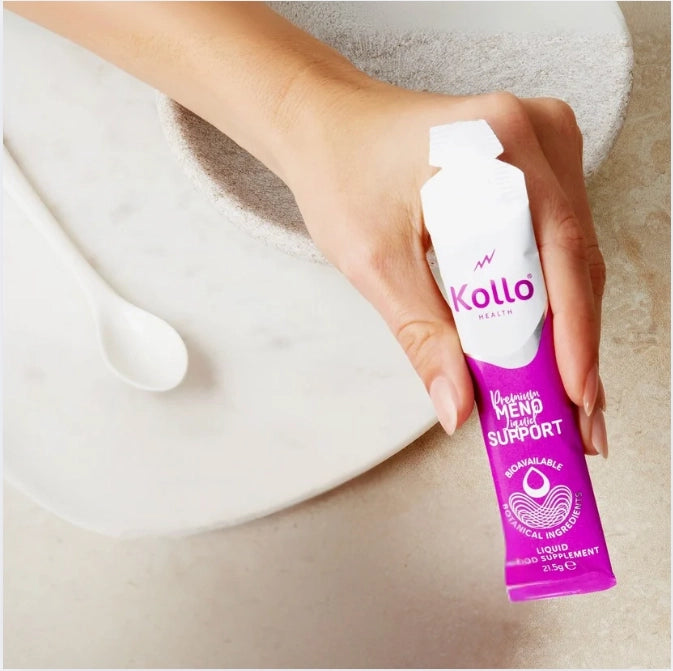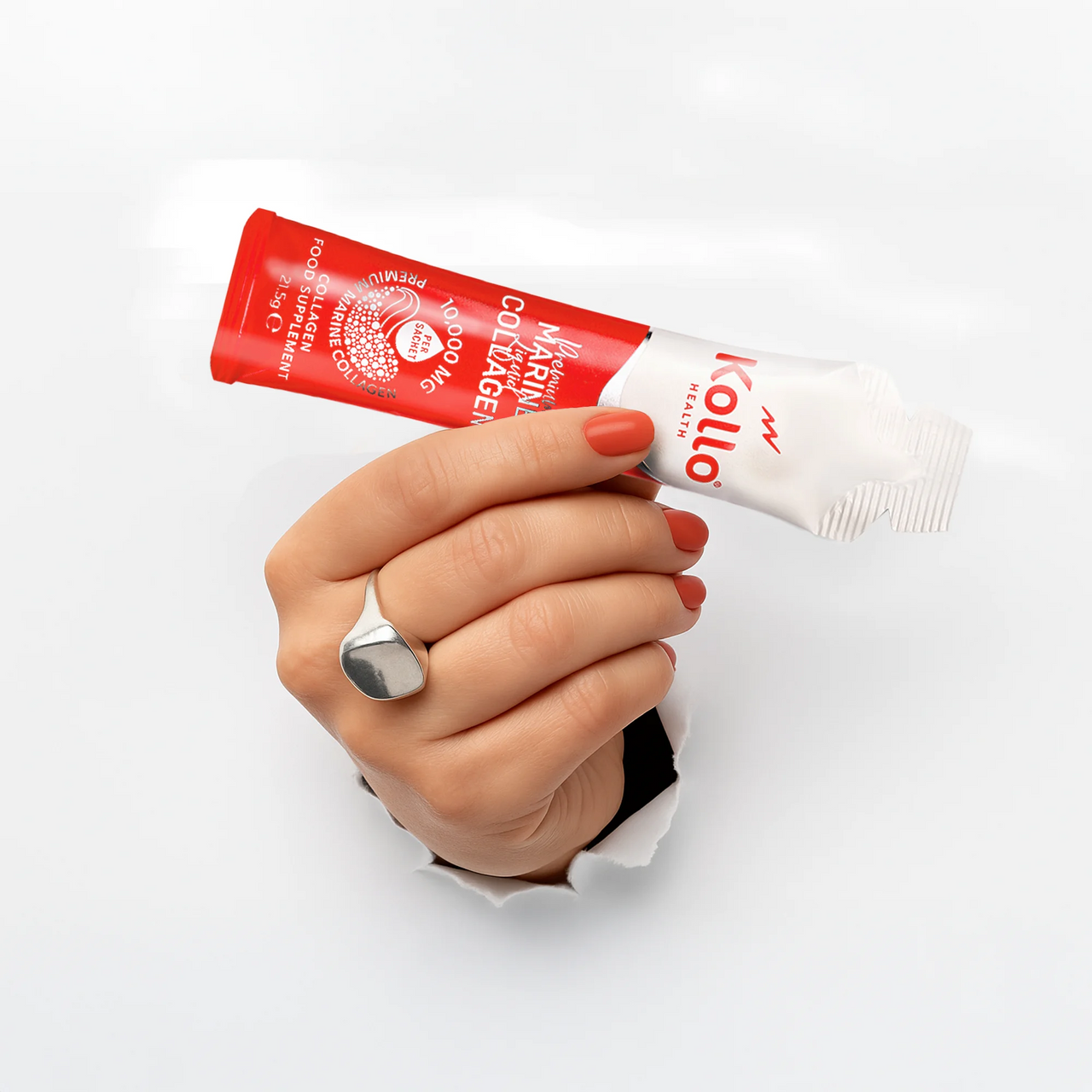Collagen is the most abundant protein in the human body, making up a large part of our connective tissues, including cartilage, tendons, and skin. It is vital for maintaining the structural integrity of joints, ensuring smooth movement and reducing friction. As we age, the body’s natural collagen production declines, which can lead to joint pain and stiffness. Collagen supplements have become a popular remedy for maintaining healthy joints, reducing pain, and improving mobility.
But with so many different types and forms of collagen available, how do you know which one is best for joint pain? In this blog, we will explore the various forms of collagen, their benefits, and how to use them effectively to support joint health.
Hydrolysed vs. Undenatured Collagen
Collagen supplements come in various forms, but the two most common ones for joint health are hydrolysed collagen and undenatured collagen. While they both offer benefits, they work differently in the body and may be better suited for different conditions.
Hydrolysed Collagen
Hydrolysed collagen, often referred to as collagen peptides, is made by breaking down larger collagen molecules into smaller, more easily digestible pieces. This process makes hydrolysed collagen highly bioavailable, meaning it’s easily absorbed by the body.
- How it works for joint pain: Studies have shown that hydrolysed collagen can be effective in reducing joint pain and stiffness, especially for individuals with osteoarthritis or those who engage in high-impact physical activities. The smaller peptide chains in hydrolysed collagen help stimulate the body’s own collagen production, which is crucial for maintaining healthy cartilage and supporting joint function.
- Ideal for active lifestyles: Hydrolysed collagen is often recommended for athletes or people who put a lot of stress on their joints due to physical activities. It helps in the repair of connective tissues and may prevent the breakdown of cartilage that leads to joint pain over time.
Undenatured Collagen
Undenatured collagen is less processed than hydrolysed collagen and retains its natural, native structure. This type of collagen is most often sourced from chicken sternum cartilage and is rich in Type II collagen, which is known for its ability to support joint health.
- How it works for joint pain: Undenatured collagen works by interacting with the immune system to prevent the inflammation that breaks down cartilage in the joints. This makes it particularly useful for people with autoimmune conditions like rheumatoid arthritis, where the immune system attacks the joints.
- Ideal for autoimmune-related joint pain: If you have a condition like rheumatoid arthritis or experience chronic inflammatory joint pain, undenatured collagen may offer better results than hydrolysed collagen. It helps modulate immune responses, reducing inflammation and protecting cartilage from further damage.
Why Take Collagen Supplements?

As we age, collagen production decreases naturally, and this decline can lead to
various health issues, including joint pain, stiffness, and loss of mobility. Collagen supplements help replenish the body’s collagen supply, aiding in the repair and maintenance of connective tissues like cartilage, tendons, and ligaments.
Here are a few reasons why taking collagen supplements can be beneficial for joint pain:
- Improves cartilage strength: Cartilage is made up of collagen fibers, and as collagen levels decrease, cartilage becomes weaker and less effective at cushioning the joints. Collagen supplements can help strengthen cartilage, reducing friction between bones and easing joint pain.
- Reduces inflammation: Inflammation in the joints can lead to swelling, pain, and stiffness. Collagen, especially Type II, helps regulate the immune system’s response and reduces the inflammation that causes joint pain, particularly in autoimmune conditions like rheumatoid arthritis.
- Prevents further joint damage: By strengthening the connective tissues around the joints, collagen supplements may prevent or slow down the wear and tear that leads to conditions like osteoarthritis.
By replenishing the body’s collagen supply through supplements, you can help protect your joints from further damage and maintain better mobility as you age.
What the Research Says
There is growing scientific evidence supporting the use of collagen supplements for joint pain relief. Research studies have shown positive outcomes for individuals who take collagen, particularly hydrolysed and undenatured forms.
- Study on hydrolysed collagen: A study found that athletes who took hydrolysed collagen for 24 weeks experienced a significant reduction in joint pain compared to those who did not take the supplement. The researchers concluded that hydrolysed collagen could benefit individuals who place stress on their joints, such as athletes and active individuals.
- Study on undenatured collagen: In another study, researchers found that undenatured Type II collagen significantly improved joint pain and mobility in patients with osteoarthritis. Participants experienced less knee pain and stiffness, which improved their ability to move and engage in daily activities.
These studies suggest that both hydrolysed and undenatured collagen have the potential to reduce joint pain and improve joint function, making them valuable tools in managing conditions like osteoarthritis and rheumatoid arthritis.
How Collagen Type II Supports Joint Pain Relief

Collagen Type II is especially beneficial for joint health because it is a key component of cartilage, the tissue that cushions and protects joints. As collagen levels in the body decrease with age, the cartilage becomes weaker and less effective, leading to joint pain and stiffness.
- Rebuilding cartilage: Type II collagen helps support the repair of damaged cartilage. It provides the structural matrix that cartilage needs to maintain its strength and flexibility, reducing the friction that causes pain during movement.
- Regulating the immune system: For people with autoimmune-related joint issues, such as rheumatoid arthritis, Type II collagen can help modulate the immune system’s response. It reduces the production of inflammatory cytokines that contribute to joint damage and pain.
- Reducing inflammation: Type II collagen has been shown to reduce inflammation in the joints, which is often the root cause of joint pain. By decreasing inflammation, Type II collagen helps improve joint mobility and reduce discomfort.
Whether you’re dealing with age-related joint pain or an autoimmune condition, Type II collagen offers powerful support for maintaining healthy joints.
Choosing the Right Collagen Supplement for Joint Health
With so many collagen supplements on the market, it can be difficult to choose the right one for joint pain. Here are some factors to consider when selecting a collagen supplement for optimal joint health:
- Type of Collagen: For joint health, Type II collagen is generally the most effective, particularly for conditions like osteoarthritis and rheumatoid arthritis. Hydrolysed collagen (collagen peptides) can also be beneficial for overall joint health and recovery from physical activity.
- Source of Collagen: Collagen supplements are derived from various sources, including bovine (cow), marine (fish), and chicken. Bovine collagen typically contains Types I and III collagen, which are great for overall skin and connective tissue health. Marine collagen is high in Type I collagen and may help with joint recovery, while chicken collagen is rich in Type II, making it ideal for joint pain relief.
- Additives and Purity: It’s important to choose a high-quality collagen supplement that doesn’t contain unnecessary fillers or additives. Look for supplements that are free from artificial flavors, preservatives, and allergens.
By selecting a supplement that contains the right type of collagen and meets your specific needs, you can support your joint health more effectively and experience better results.
Can Multi-Collagen Formulas Help with Joint Pain?
Multi-collagen formulas are supplements that contain a blend of various types of collagen, typically Types I, II, III, V, and X. These supplements are designed to offer broad benefits for the skin, hair, nails, and joints.
- Pros of multi-collagen formulas: Multi-collagen formulas can provide a wide range of benefits because they contain different collagen types. For example, Type I collagen is great for skin health, while Type II is ideal for joints, and Type III supports gut health and overall elasticity in the body.
- Cons for joint-specific pain: If joint pain is your primary concern, it may be better to choose a more specialized supplement that focuses on Type II collagen. Multi-collagen formulas can still support joint health, but a targeted approach may yield better results for those with significant joint discomfort or specific conditions like osteoarthritis or rheumatoid arthritis.
How to Use Collagen for Optimal Joint Support
To get the most out of your collagen supplement for joint pain, consistency and dosage are key. Here are some tips on how to use collagen effectively:
- Consistency matters: Collagen supplementation is not a quick fix. It can take several weeks to a few months to see noticeable improvements in joint pain and mobility. Make sure to take your collagen supplement daily for best results.
- Combine with a balanced diet: For optimal joint support, it’s important to pair your collagen supplement with a healthy, balanced diet. Foods rich in vitamins and minerals, particularly Vitamin C, magnesium, and omega-3 fatty acids, can support collagen production and improve overall joint health.
- Follow dosage guidelines: The right dosage will depend on the type of collagen you’re taking and your individual needs. For hydrolysed collagen, a typical dosage is 10-20 grams per day. For undenatured Type II collagen, a much lower dosage of 40 mg per day is often sufficient due to its potency.
Collagen Dosage: How Much Should You Take for Joint Relief
The amount of collagen you should take depends on the type of collagen and your specific joint health needs:
- Hydrolysed collagen: A common dosage for hydrolysed collagen (collagen peptides) is between 10-20 grams per day. This dosage has been shown to improve joint pain, skin elasticity, and overall connective tissue health.
- Undenatured collagen: For undenatured collagen, particularly Type II, much smaller doses are needed. Clinical studies suggest that as little as 40 mg per day can provide significant joint pain relief, especially for individuals with osteoarthritis or rheumatoid arthritis.
If you’re unsure about the right dosage for your needs, it’s always a good idea to consult with a healthcare provider, especially if you have underlying health conditions or are taking other medications.
Conclusion
When it comes to joint pain, collagen supplements can provide valuable relief and help maintain joint health. Hydrolysed collagen is ideal for athletes and individuals with osteoarthritis, while undenatured collagen is better suited for autoimmune-related joint pain, such as rheumatoid arthritis. Both forms of collagen have been scientifically proven to support joint health by reducing inflammation, rebuilding cartilage, and improving overall mobility.
Choosing the right type of collagen, staying consistent with supplementation, and pairing it with a healthy diet can help you achieve optimal joint support. Whether you’re looking to manage age-related joint stiffness or ease pain from an active lifestyle, collagen supplements offer a natural and effective solution to keep you moving comfortably.







